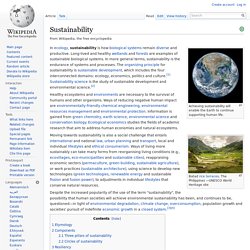

The Nano Garden Lets You Grow Veggies Right in Your Kitchen - Brit & Co. - Living. Whether we're scouring the web for funky flower pots or turning old floppy disks into whimsical homes for herbs and succulents, we love all forms of creative gardening.

Cities far and wide have started embracing rooftop gardens for bringing fresh local veggies in the spring, summer and fall to city folks. Fire escapes have become perfect spots for tomato plants, and windows have become increasingly jam-packed with basil, rosemary, mint, and sage. But, what about city dwellers and suburbanites who don't have access to a rooftop garden or plant-friendly fire escape? Or perhaps the right dose of rainwater and sunshine just doesn't make it to your particular locale?
The Kitchen Nano Garden by Hyundai is a super cool concept for growing a vegetable garden right in your kitchen, without help from sun or rain. We anxiously await the next phase of this awesome concept, and would love to try harvesting an indoor vegetable garden at Brit HQ! How the Dutch got their cycle paths. Defining Sustainability. All lectures are in Carpenter Hall 102 Joseph Mayo, March 1st @ 5pm “Timbercity: Innovative Multi-Story Wood Architecture” Associate Director, AIA Northwest Mahlum Architects David Kutsunai, March 18th @5pm Principal, IA Interior Architects Javier Sanchez, March 21st @ 4:15pm Founding Partner, JSa Tod Stevens, March 26th @ 4:15pm Partner, SHW Group Barbara Swift, March 27th @ 5pm Principal, Swift Company Tom Hille, April 4th @4:15pm Visiting Professor Debbie Kennedy, April 5th @4pm Co-Director of Interiors, Olson Kundig Architects Jim Graham, April 11th @ 4;15pm Principal/Founder, Graham Baba Architects Kevin Tabari, April 19th @ 4pm Founder, Public 47 Spring Lecture Series “Public Space” Symposium Curriculum changes in process Portfolio Reviews Commencement 2013 Spring Semester Final Reviews Arch 511 Graduate Study Tour Preservation course focuses on Pullman’s red brick roads School of Design and Construction Director named AIA Fellow Construction Management expands online.
Sustainability Basic Information. You are here: EPA HomeSustainabilityBasic Information What is sustainability?

| What is EPA doing? | How can I help? What is sustainability? Sustainability is based on a simple principle: Everything that we need for our survival and well-being depends, either directly or indirectly, on our natural environment. Sustainability is important to making sure that we have and will continue to have, the water, materials, and resources to protect human health and our environment. Top of page What is EPA doing? Sustainability has emerged as a result of significant concerns about the unintended social, environmental, and economic consequences of rapid population growth, economic growth and consumption of our natural resources.
Today EPA aims to make sustainability the next level of environmental protection by drawing on advances in science and technology to protect human health and the environment, and promoting innovative green business practices. How can I help? Government Regulations and Practices. Sustainability. Achieving sustainability will enable the Earth to continue supporting human life.

In ecology, sustainability is how biological systems remain diverse and productive. Long-lived and healthy wetlands and forests are examples of sustainable biological systems. In more general terms, sustainability is the endurance of systems and processes. The organizing principle for sustainability is sustainable development, which includes the four interconnected domains: ecology, economics, politics and culture.[1] Sustainability science is the study of sustainable development and environmental science.[2] Healthy ecosystems and environments are necessary to the survival of humans and other organisms.
Etymology[edit] The name sustainability is derived from the Latin sustinere (tenere, to hold; sub, up). Components[edit] Three pillars of sustainability[edit] Circles of sustainability[edit] Resiliency[edit] History[edit] Principles and concepts[edit] Scale and context[edit] Consumption[edit] Measurement[edit] 1.